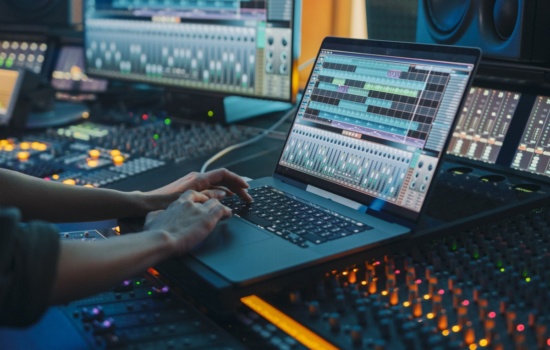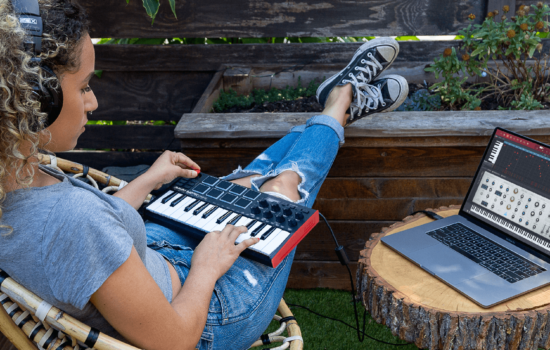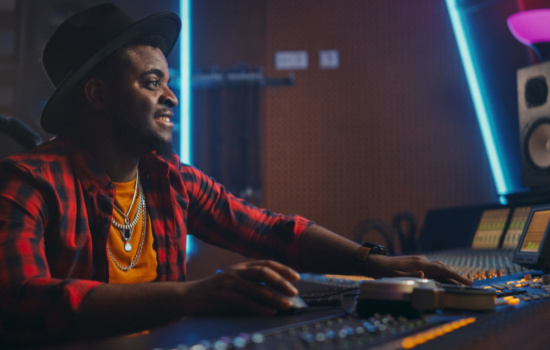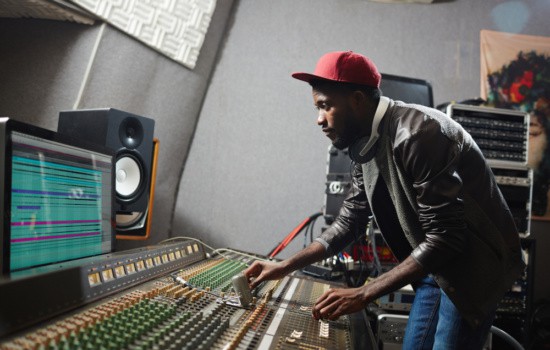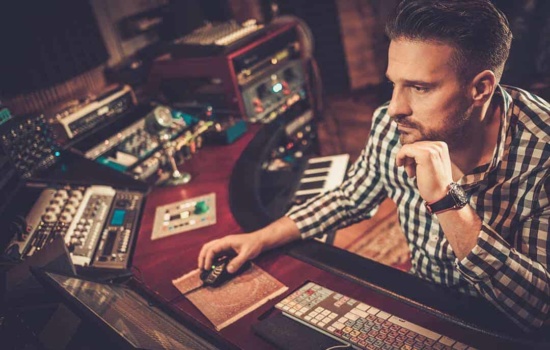Music Career Finder
Survey Start
DJ
Career Overview
DJs play a continuous mix of music via turntables, CDJs, or software at parties, clubs, bars, concert venues, raves, and music festivals. Most popular DJs also write and produce their own tracks.
Alternate Titles
Nightclub DJ, Deejay, Disc Jockey, Turntablist
Avg. Salary
$49 an hour1
Salary Range
$21,000 to $46,000,0002

How To Become a DJ
- A DJ provides the music at bars, nightclubs, concert venues, parties, raves, and music festivals
- DJs typically work weekend nights when these events are happening
- You’ll need to learn skills like beatmatching, phrase matching, mixing, scratching, and stage presence
- Travel may be involved, but not always
- DJs usually charge an upfront fee for their services but can also make money through streaming and royalties
- Beginner to intermediate DJs make about $49 an hour ($21,100 to $221,000+ per year)
- Career Description
- Salary
- Career Outlook
- Career Path
- Experience & Skills
- Education & Training
- Sources
- References
Career Description
A DJ provides upbeat, danceable music in bars, nightclubs, concert venues, parties, raves, and music festivals.
Many DJs are also Turntablists, meaning they “scratch” records, and use specialized equipment to fade from one track to the next, or even play multiple tracks simultaneously.
A Quick History of DJs
The term “DJ” originally referred to people who worked at radio stations playing records on air (vinyl disks), but the role has now expanded widely to describe those who mix music from any recorded source, like vinyl records, cassettes, CDs, or digital audio files.
While the earliest DJs used record players and cassettes played on boomboxes to create their mixes, there is now specialized music software available that DJs use to manipulate digital audio files.
Where Does a DJ Perform?
DJs can perform at a number of places, like:
- Weddings
- Private and corporate events
- Clubs
- Raves
- Live performances supporting another artist, often rappers
- Parties
- Cruise ships
A Day In the Life of a DJ
Many DJs work weekend nights, with the most popular nights being Thursday through Saturday when all of the parties and concerts typically happen. Shifts are usually a few hours long.
Beginner DJs usually hold down day jobs, so be prepared to work a full-time job during the day and be a part-time DJ at night.
Some travel may be involved, especially if you tour with an artist running their backing tracks. But there’s definitely a world in which you can find enough work in your region.
Salary
According to Payscale.com1, the median wage for a DJ is about $49 an hour, and between $21,100 and $221,000+ per year.
Of course, superstar DJs can make millions of dollars, like The Chainsmokers who make up to $46 million annually, according to Forbes2.
How Do DJs Make Money?
DJs typically charge an upfront fee per gig.
When you’re negotiating your rates, think about how much you want to make per hour, then multiply that rate by how many hours you’ll spend on a gig (including practice, travel time and expenses, setting up the equipment, performing, and tearing down the equipment). Then quote the venue/client a flat fee.
DJs can also earn money from:
- Streaming royalties
- Mechanical royalties (if a DJ writes/releases original music)
- Sync licensing (getting music on TV, in ads, in a movie, or in a video game)
- Selling the master rights to their songs (like DJ David Guetta did for a reported $100 million-plus3)
- Touring
- Merch sales
Cut Chemist said 75% of his income is from performing and touring, but he also makes money selling T-shirts, vinyl records, downloads/streams, and a fan-backed subscription service.
Luca Schreiner, Lost Frequencies, and Plastik Funk said performing is the main way they make money as a DJ.
Hey, what do you think about trying our new Music Career HelperMusic Career Helper really quick? It’s totally free and could help get your career moving fast! Give it a try. It’s totally free and you have nothing to lose.
Career Outlook
People will always demand live entertainment and music for events, so having a career as a DJ can provide good job security for people with the right skills.
As long as there are parties, weddings, and other types of gatherings that need energetic music, there will be a need for DJs.
How Long Does It Take To Become a Career DJ?
Building your career to the point where you can make a living as a DJ can be different for every person.
With equipment, software, and knowledge being more readily available than ever before, the market has become quite saturated.
You may be doing DJ work on the side for a while before you can build up the network, reputation, and skills to get regular full-time work.
Career Path
Most DJs start by getting some DJ equipment and learning the basics. Then it’s up to you to practice and hone your craft, both from home and on the stage.
Starting Your Career as a DJ
The best place to start is to ask a more established DJ if you can shadow them, just to get a feel for what goes into preparation, their typical hours, and what they do behind the turntables.
Shadowing could turn into becoming the DJ’s assistant. Whether or not it’s paid, this would be a great way to learn the ropes.
Here’s how you can get your first gigs as a DJ:
- Offer to DJ your friends’ parties/events for free
- Ask local bars if you can DJ for free one night
- Create a website outlining your services and share it on social media
- Post your DJ songs/mashups on social media
Experience & Skills
Here are the basic DJing skills you’ll need to develop…
Beatmatching
Beatmatching is when you align the beats of two or more tracks to create a seamless transition between songs.
Phrasing
Phrasing (AKA stage matching or phrase matching) involves aligning the phrases of two songs to create a seamless transition between them. While beatmatching is about matching the tempo/BPM of two songs, phrase matching is aligning the song structure of both songs.
Mixing
Mixing is where you blend tracks together smoothly, adjusting volume, EQ, and adding effects as needed.
Scratching & Effects
After getting comfortable with the basics, you can explore advanced techniques like scratching and adding effects to enhance your live performances.
Stage Presence
Even though it’s all about the music and you’re not singing, you have to be comfortable being in front of crowds.
“You’re one person,” said Lost Frequencies. “…And the only person on stage when DJing to fans, so all eyes are on you to execute a set as best as you possibly can.”
Education & Training
When you’re ready to start your education on becoming a DJ, you have two main options: get a music degree or jump into DJing for hands-on training.
Going To School To Become a DJ
Most universities (if any at all) don’t have a program specifically for DJing. So you can start by going to school for music production and/or engineering.
Through a program at a music school, you can learn the basics of rhythm, music theory, and even develop your musicianship. All skills that can come in handy as a DJ.
Self-taught
There’s no substitute for hands-on experience, so buying some basic gear and learning to use it effectively is the best place to start.
DJ tyDi said you should get a Pioneer CDJ 2000’s and a Pioneer DJM mixer. Then load your songs onto a USB and start practicing. He also recommends Beatport as a starting place.
Check out our full guide on what DJ equipment you’ll need.
Sources
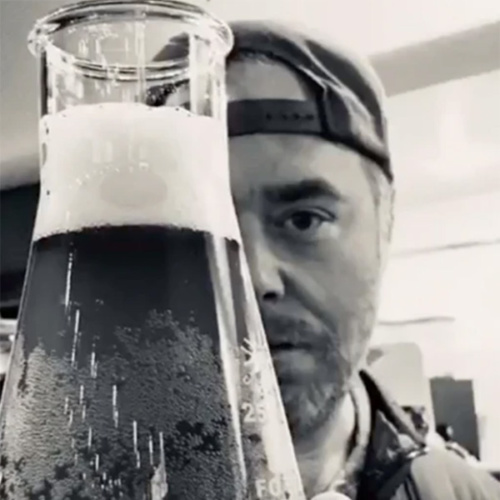
Cut Chemist
Cut Chemist has been recording and performing for nearly 30 years. Known as a turntablist, he started his journey into DJing at age 11. By the time he was 14 years old, Cut started recording with his friends (including Chali 2na of Jurassic 5) in an enclosed sun patio that his dad converted into a small make-shift recording studio.
By age 21, Cut was a founding member of both the rap group Jurassic 5 and the Grammy award-winning Latin funk outfit, Ozomatli. His involvement with both groups helped develop a taste for music and rhythms from around the world while keeping his passion for the hip hop tradition. His mix-tapes and remixes became critically acclaimed.
His ‘Chemist’ moniker was fully realized with his instrumental, Lesson 6: The Lecture. In the years following, Cut started a series of mix cds with DJ Shadow using all 45s: Brainfreeze, Product Placement and The Hard Sell, the last of which debuted and headlined at the world-famous Hollywood Bowl.
Cut’s solo album journey would begin with The Audience Is Listening which was released on Warner Bros in 2006. Following his major label stint, he decided to create his own boutique label that would allow him more freedom. Sound Of The Police, Funk Off Mega Mix & his sophomore solo album, Die Cut were his most notable releases. Although these albums may sound very different from one another, they all have a single thing that ties them together — Cut Chemist pushes boundaries on all of them, testing our musical palates while introducing us to obscure musical finds.
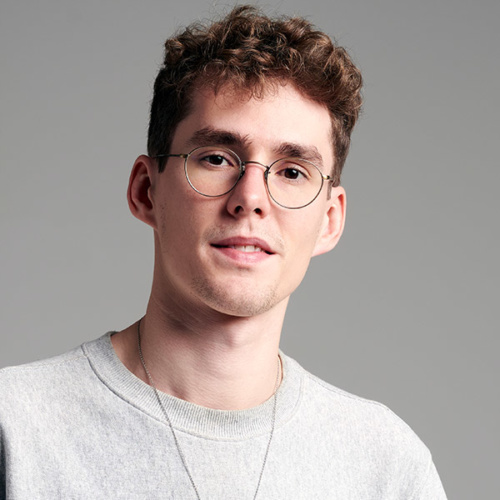
Lost Frequencies
Felix De Laet, better known by his moniker Lost Frequencies, has soared to success in the international music industry over the past half-decade. Releasing his global smash hit “Are You With Me” back in 2014 with the track rapidly ascended by hitting multi-platinum status, taking the #1 spot in 18 countries and becoming the first Belgian artist to hit #1 in the UK.
Proving that he is no one-trick pony in the studio, “Reality” evidenced as another major smash hit from that, and flew to platinum status in no less than 7 territories, before the release of his debut album Less Is More (2016), and sophomore follow-up Alive And Feeling Fine (2019), showcased his enthusiasm, dedication to craft and sheer skill all whilst playing the long game.
As well as this, a zig-zag of global dates at the world’s most important festivals including Coachella, Tomorrowland, Lollapalooza, closing down EDC Vegas in spectacular solo style, and a hugely impressive arena run with fellow chart-dominators The Chainsmokers; another year sparkled bright for the superstar. And it didn’t end there…
Solidifying himself further as a trailblazer in the scene, in 2018 Lost Frequencies amassed over 1 billion streams and ripped up the rule book on his tropical-infused official remixes on Major Lazer, Justin Bieber & MØ’s “Cold Water,” Miley Cyrus’s “Malibu, LSD Labrinth/Diplo/Sia’s “Thunderclouds,” as well as Ellie Goulding’s “Worry About Me,” showing that his unique electronic style can lend itself to multi-dimensional pop and still deliver an inimitable sound as the hits just kept on coming.
Leading on from the announcement of his long-awaited second album Alive And Feeling Fine, Lost Frequencies also announced his first-ever fully-live tour, with a dozen dates split between both the USA and Europe hitting major cities all over these continents; comprised of completely his own original material, compositions and all-new presentations, Lost Frequencies is bringing an innovative, fresh interpretation to his sound that so many have come to know and love.
With magical performances from New York and LA, to Berlin and Paris, sold-out shows have also wowed across the board at cities including Paris and Cologne with extra shows added in Amsterdam due to phenomenal demand.
Leading on since the announcement, Alive was released into the world in October with initial singles “Truth Never Lies” feat Aloe Blacc and “Black and Blue” with Mokita, with the full-length going on to, deservedly, snatch up a constellation of chart spots including the #1 Dance Chart position in Belgium, France, Cambodia, and Hong Kong, #2 Dance position in the USA and Switzerland, as well as Main Chart positions that included #4 (Belgium) and further positions within the Top 30 Main Charts across Austria, Germany, Cambodia, Lebanon, and Hong Kong.
Lost Frequencies also firmly established himself as one of the strongest, fastest rising talents with his debut entry into the 2017 DJ Mag poll at #26, the highest new entry of any artist that year, when further placing in 2018 and most recently 2019, that saw him ride high at #20. As the accolades multiplied including emerging victorious in the “Dance International” and “Hit of The Year” categories at the ECHO award ceremony (comparable with the U.S. Grammys), beating the likes of Adele on the latter two.
After the successes of his Lost Frequencies and friends-curated parties globally, he took the party to Tomorrowland for the third year in 2019, hosting guests including Robin Schulz, Armand van Helden, Sigala, Felix Jahen, Nora En Pure, and many, many more, showcasing the huge appeal held by Lost Frequencies not only in his home of Belgium but amongst the world-class, diverse Tomorrowland crowd.
Branching out furthermore since the launch of his label Found Frequencies that has not only featured his own productions from Alive And Feeling Fine including names such as James Blunt, Zonderling, but also a host of new artists including FROTZ, Jameson, Pretty Pink to name but a handful of link-ups on the imprint. From show-stopping live appearances to career-making studio hits, Lost Frequencies continues to soar to a meteoric rise of his own accord.
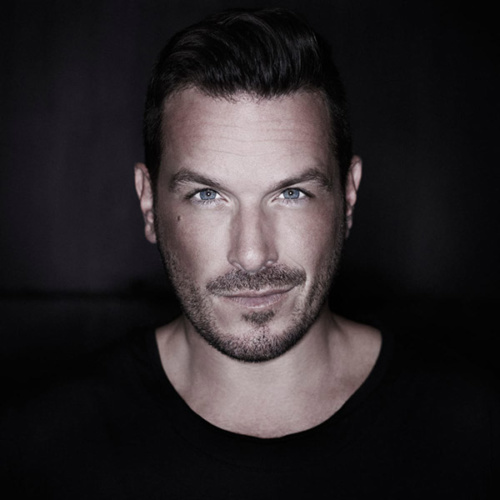
Plastik Funk
Spanish-born, Germany-based Plastik Funk is a renegade within modern electronic dance music that, as European DJs and Producers continue to dominate and entice, leads the charge with an impressive collection of accolades, mind-boggling energy and world-class releases to solidify his status.
With an ever-growing amount of multi-million streamed tracks to his name including the UK chart-smashing “Dr.Who” alongside Tujamo and Sneakbo (clocking in at 6 million Spotify plays alone) to his recent collaboration alongside Aussie sisters NERVO and Tim Morrison — “Dare Me” on the mighty Spinnin’ Records, which has received over 2 million streams and still climbing! Plastik Funk continues to take his “bliss house” sound to audiences around the world.
Whether he’s collaborating with elite artists such as Timmy Trumpet and Alle Farben, or remixing the likes of Robin Schulz, David Guetta, or Robyn, the core of Plastik Funk’s sound is all about the party. From club shows to mainstage festival arenas it’s that bass-driven, bouncing house style that never fails to ignite a dancefloor and have the crowd in pure hysteria.
From early nods by dance royalty like Bob Sinclair who invited Plastik Funk to join him at his ADE (Amsterdam Dance Event) showcase, and by none other than the late Avicii who previously invited him on-stage at his Ushuaia Ibiza Sunday residency, Plastik Funk has since gone on to prove this high praise around his talents was justified.
Appearing on the mainstages of the world’s biggest club, World Club Dome and Ultra Europe, as well as performing scorching live sets at some of the scene’s biggest and most exciting events including Tomorrowland and Parookaville, Plastik Funk has also delivered rip-roaring performances across headline, solo tours of Asia, Europe, North America and beyond. In 2019 alone he performed 195 shows in his continent-hopping DJ schedule.
With worthy, double-figure Beatport Top 10’s, a string of releases on equally impressive labels such as Spinnin’ Records, Smash The House, and Mixmash, Plastik Funk is set to usher in a new era of excellence in 2020. With a stacked release schedule that is set to reveal some of his finest studio tracks to date, a dot-to-dot constellation of tour shows that will have him shaking dancefloors across the globe, the best is surely yet to come….
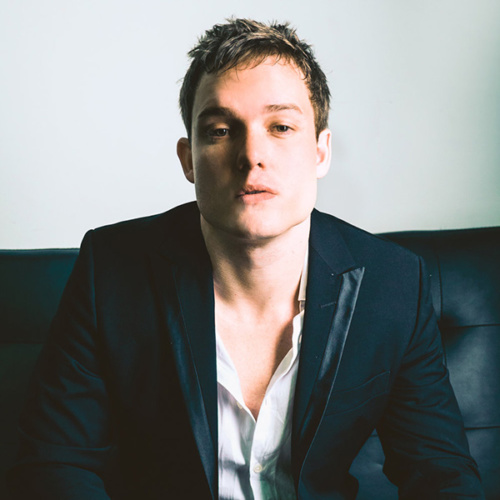
tyDi
Through his extensive discography, which includes five full-length albums, countless singles and remixes, and numerous EPs across diverse genres on various labels from Republic to Armada, tyDi has topped global charts, toured the world, and made an indelible mark on the music world. Last year, the prolific Australian Producer/DJ made waves with his acclaimed collaboration with Grammy-winning Composer Christopher Tin, resulting in the epic album Collide, “a masterful navigation of orchestral and electronic elements,” according to Dancing Astronaut.
The album also received accolades in DJMag, The LA Times, as well as placement on Friday Cratediggers and New Music Friday USA Spotify playlists, and hit both the Billboard dance and classical charts. tyDi has also collaborated with the Grammy-nominated Singer JES, trance music legend Andy Moor, Producer Matt Fax and many more.
A blissful balm of a song, tyDi’s recent single “It Will Be Okay” has been called “a progressive trance anthem for the ages” by Dancing Astronaut. The song received a significant 2K pre-saves on Spotify, as well as airplay on SiriusXM BPM, iHeartRadio Evolution, Nexus Radio and Dance Factory Chicago. “Sunrise,” a song from his chill side project Wish I Was, was added to SiriusXM Chill and hit #1 on blog aggregator Submithub’s electronic chart.
tyDi has also contributed his own reimagined arrangements of some Disney’s most beloved anthems for the current Disney on Ice world tour. He has also composed commercial music for Stella Artois, Quickbooks (their 2019 Oscars ad), and Swarovski TV ads. He’s composed music for an acclaimed PSA campaign for The Make-A-Wish Foundation. For his film/TV/ad work, tyDi is represented by Fortress Talent Management.
tyDi has 1 million aggregate social followers, over 25 million Spotify streams and over 1 million YouTube views. He is also an expert at engaging his fanbase on his socials, garnering huge responses to his posts and promotions, with thousands of likes/comments/shares. A remix contest run in conjunction with Splice.com was incredibly successful with 7,100 plays of the track, 1,600 downloads of the stems, and 137 total submissions.
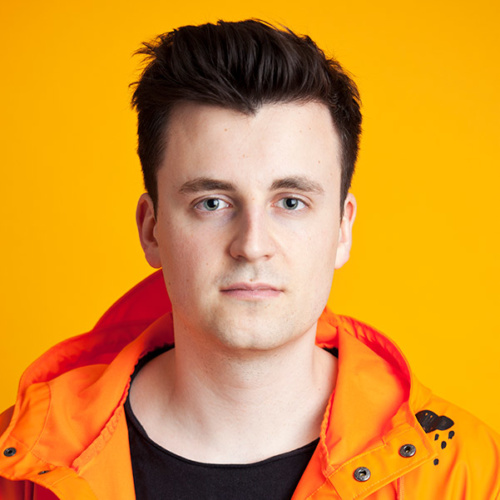
Luca Schreiner
After honing his craft as a Music Producer for over four years, 24-year old Luca Schreiner from Stuttgard decided to take center-stage as a performer with huge success. His style varies between classic dance, tropical influences, and elements of the pop world.
Luca’s unique mix of sounds brings a new freshness to the music industry and provides a distinctly elegant listening experience. Luca is currently signed with Ultra Music and has had huge success with several remixes for the likes of Clean Bandit, Kelly Clarkson, Professor Green, Vance Joy, Louis Tomlinson, ZAYN, Alessia Cara, Nina Nesbitt, Why Don’t We, Sia, James Arthur, Matoma, Shaggy, Pitbull and many more.
After his tremendous debut single, “Missing” on Ultra, which covers the old-time classic from Everything But The Girl, Luca got asked to do several remixes for some of the biggest labels of today’s music business including Atlantic, Universal, Def Jam, Ultra, Sony, Armada and more. His Spotify numbers are incredible, he has reached over 95 million streams on Spotify alone and even more on other platforms.
Besides Luca’s successful productions he also played at some of the biggest festivals and clubs in the world like the Ferdinands Feld Festival, World Club Dome, Marquee New York, and World Club Cruise next to artists like Oliver Heldens, Don Diablo, Felix Jaehn, Kungs, Jonas Blue and many more! At just 23, he’s showing real promise and we can’t wait to see what he continues to achieve within the realms of the music industry.
References
- 1Multiple. "Average Disc Jockey (DJ) Hourly Pay". PayScale. published: Nov 11, 2019. retrieved on: July 1, 2020
- 2Mercuri, Monica. "The World’s Highest-Paid DJs 2019: The Chainsmokers Topple Calvin Harris With $46 Million". Forbes. published: July 29 2019. retrieved on: July 1 2020
- 3Aswad, Jem. " David Guetta Sells Catalog to Warner Music in Partnership Deal Worth ‘Around $100 Million’". Variety. published: June 17 2021. retrieved on: October 18 2024
